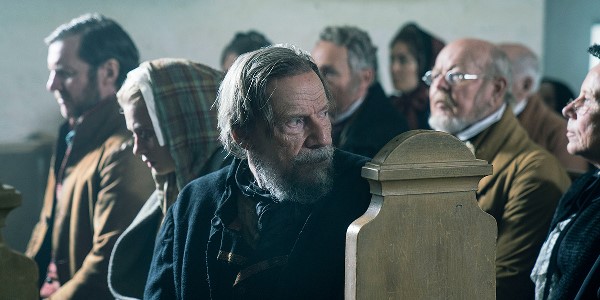![]() The Toronto International Film Festival offers filmgoers an opportunity to catch up with or dive into the new crop of movies from a specific country or region—intentionally or inadvertently. Each September, film industries from around the world go to Toronto to launch new works for an international audience.
The Toronto International Film Festival offers filmgoers an opportunity to catch up with or dive into the new crop of movies from a specific country or region—intentionally or inadvertently. Each September, film industries from around the world go to Toronto to launch new works for an international audience.
Given that 255 feature movies screen within an 11-day span, much of what one sees depends largely on the screening schedule. This year, Danish films became part of my focus, much of it by chance. Of the seven (co-)productions from Denmark, I caught five, two of which were documentaries seen earlier in the festival, Angels Are Made of Light and Heartbound: A Different Kind of Love Story. It was a Danish feature film, though, that became the first gem discovery this year.
With its emphasis on nature and its mudbound farmers, this beautifully crafted film recalls other earthly European historical dramas set in an isolated countryside: The Tree of Wooden Clogs and Pelle the Conqueror. However, the film’s very first shot, of a motionless hand visible through the surface of frozen ice, clues viewers right away that the film might head toward crime drama. Besides possibly murder, one of the other transgressions to unfold includes insurance fraud. With that element, and another that emphasizes the love of the parent whose actions know no bound, the script by director Michael Noer (Papillon) and Jesper Finkechoes echoes the intrigues of a James M. Cain novel—Double Indemnity and Mildred Pierce. They have made a film noir filled with hazy, soft northern light.
The film plunges into its time period, depicting succinctly the pecking order in a rural Danish community in the late 18th century—the exact decade is not specified. This is most telling in the local parish church, where widowed Jens (Casino Royale’s Jesper Christensen, great in a Shakespearean-sized role) and his kin are asked by the minister to move back one pew; the entire village has heard that Jens has had to sell a cow in order to pay for feed, thus his stature has stumbled. He and his family are one bad harvest away from joining the rest of the landless parishioners standing in the back begging for alms. The entire village is bound by the environment in a community where social standing is reflected overwhelmingly by economic status.
To the rescue, a simple and thoughtful proposal presents itself to Jens as a solution to his money problems. It would also provide for the welfare for his entire household: a neighboring farmer asks for the hand of his marriage-eligible daughter, Signe (Clara Rosager). She seems agreeable to the arrangement; she and the young man exchange glances at church when Jens is not looking. The families’ two farms could become united, and Jens’s nephews, whom he has raised, will remain with the family and not be forced out into the world. To sweeten the deal, the potential in-laws even offer three-quarters of a pension to Jens.
It’s a sensible agreement, until Jens discovers out that a prosperous Swede, Gustav (Magnus Krepper), is a widower. Breaking his bond with his neighbors, and thus heading toward hubris, Jens takes another tactic, giving into the idea that money solves every problem: to have his daughter enter into the local gentry by marrying Gustav. Initially, Gustav turns him down; starving, the prospective bride-to-be is hardly the picture of good health, but Jens drives a hard bargain, offering the insurance money on his farm as her dowry. It’s this incentive that complicates Jens’s perfect plan.
Throughout, filmmaker Noer takes a direct approach. His film is meticulously directed, with not a scene wasted. There is nothing extraneous here. Each scene reveals something about either Jens’s thought process or how others, especially Signe, react to their circumstances. The story plays out almost as a thriller, while the narrative and the characters’ development move in unpredictable and credible directions.
The film screened in the festival’s Contemporary World Cinema section, and it would have belonged in a competition slate at a major film festival, based on what premiered at Cannes in May and the films coming straight from the Venice Film Festival to Toronto. It joins a strong slate of historical dramas this year, such as Pawel Pawlikowski’s Cold War, Damien Chazelle’s First Man, and Michael Leigh’s Peterloo.

















Leave A Comment